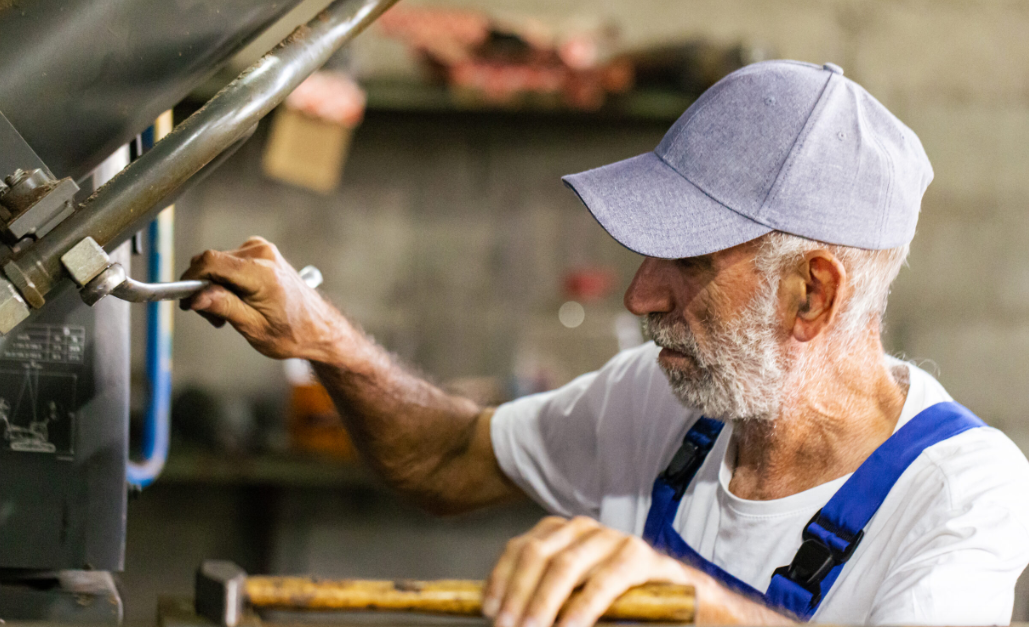Too Old to Keep Working, Not Enough Money to Stop
As the senior workforce grows, more older Americans are staying in physically demanding jobs, often risking their health.

At 70, Walter Carpenter juggles two physically taxing jobs. In the winter, he works at a ski resort restaurant in Vermont, lugging heavy loads. In the summer, he is an attendant at a state park with a swimming beach, a job that has him trudging through sand and heat. Both are tough on his arthritic knees, which he has put off replacing.
His bills won’t let him retire anytime soon, even as working becomes increasingly difficult for him. Carpenter knows that if he pushes himself too hard, the results “could be disastrous or fatal,” he said. He worries: “Will my body hold up? Will my heart hold up?”
Carpenter’s questions speak to a growing reality. Across the country, more seniors are staying on the job, often without enough retirement savings to step away. And for aging workers, every shift carries new risks. Older workers are far more likely to sustain a fatal work injury than their younger counterparts, Labor Department statistics show. Workers 65 and above are twice as likely to die on the job as workers aged 55 to 64, and three times as likely as all workers. When older workers get injured, the consequences last longer. They are more likely to land in the hospital and to miss days of work and the wages that come with it.
The situation is likely to get worse for aging workers as the senior population explodes in the coming decades. By 2030, more than one in five U.S. residents will be over the age of 65. Despite these trends, little is being done to safeguard an aging workforce, and it is unlikely that the Trump administration will address the issue, given budget and staff cuts at the Occupational Safety and Health Administration and the National Institute for Occupational Safety and Health — agencies responsible for protecting workers.

“The biggest protection workers might get is moving to less physically rigorous jobs, rather than a specific practice that’s going to protect an older worker,” said Peter Berg, professor of employment relations at Michigan State University.
But many workers won’t ask for lighter duties because they’re afraid they’ll just be replaced by younger workers, Berg said. Only employers who value the knowledge and experience older workers bring may be willing to accommodate them, he added.
Fortunately for Carpenter, he has an accommodating boss at the restaurant where he has worked winters for the past 15 years. In a year or so, he expects to move from his current role as busser, carrying dishes from the dining room to the kitchen, to less physically taxing work as a prep cook or at the cash register. Both would require less walking and lifting.
Carpenter is grateful for his employer’s flexibility, even if he is not looking forward to the change. “I don’t enjoy [working with] cash and money that much, but oh well,” Carpenter said, but he acknowledged that the new role would “make it easier on the old man.”
本文 zblog模板 原创,转载保留链接!网址:https://2898.site/?id=20
1.本站遵循行业规范,任何转载的稿件都会明确标注作者和来源;2.本站的原创文章,请转载时务必注明文章作者和来源,不尊重原创的行为我们将追究责任;3.作者投稿可能会经我们编辑修改或补充。







